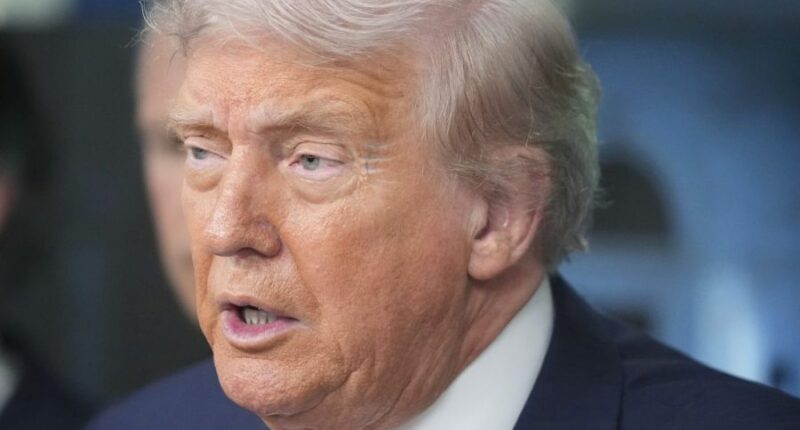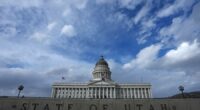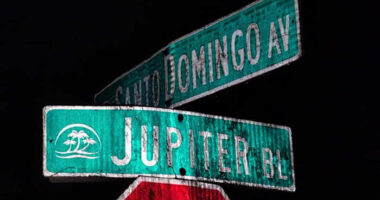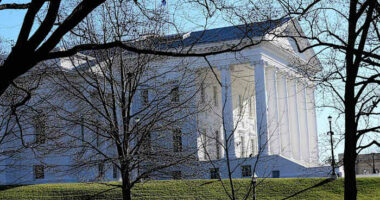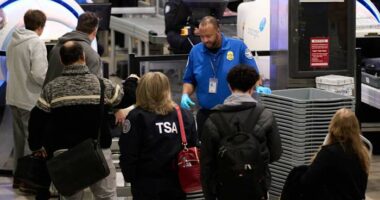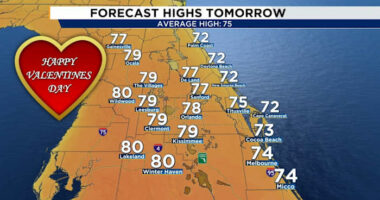Share this @internewscast.com

President Trump on Monday signed several executive orders intended to enhance crime control in the nation’s capital and across the country. One order focuses on reforming cashless bail policies, while another aims to penalize those who desecrate the American flag.
The executive order regarding cashless bail signals a potential review of federal funding for areas that do not shift away from such policies.
Decades ago, Washington, D.C. moved away from cash bail, and Illinois has removed it completely. Similarly, states like New York and New Jersey have relaxed cash bail requirements for certain crimes.
“We are putting an end to cashless bail,” Trump declared in the Oval Office. “We’ll begin by ending it in D.C., a step we can take through federal oversight.”
Earlier this month, Trump criticized cashless bail at a press conference, where he revealed plans to federalize the D.C. police force and use the National Guard for city security.
Rep. Elise Stefanik (R-N.Y.), a staunch Trump ally, said she would lead legislation seeking to outlaw cashless bail policies.
Advocates for cashless bail argue it unfairly impacts low-income individuals unable to pay for release. However, Trump and other opponents claim such policies enable offenders to quickly return to the streets.
Trump on Monday also signed an executive order that would direct the attorney general to prosecute those cases where individuals desecrate the flag by identifying state and local laws they may have violated. It also directs administration officials to terminate or revoke visas if foreign nationals are found to have desecrated the flag.
A landmark 1989 Supreme Court ruling established that burning the American flag is protected under the First Amendment.
The president also signed an order directing the Secretary of Defense to establish “specialized units” within the National Guard to be trained and equipped to deal with “public order issues.” It also directs the attorney general to review whether the Metropolitan Police Department in D.C. has impeded officers from doing their jobs effectively.
Trump has ramped up threats to get involved in cracking down on crime outside the nation’s capital in recent days, telling reporters on Friday that Chicago would be his next target.
But unlike in Washington, D.C., where the federal government has more authority, Trump cannot take control of another city’s police department. State and local officials have also pushed back on threats to send in the National Guard.
